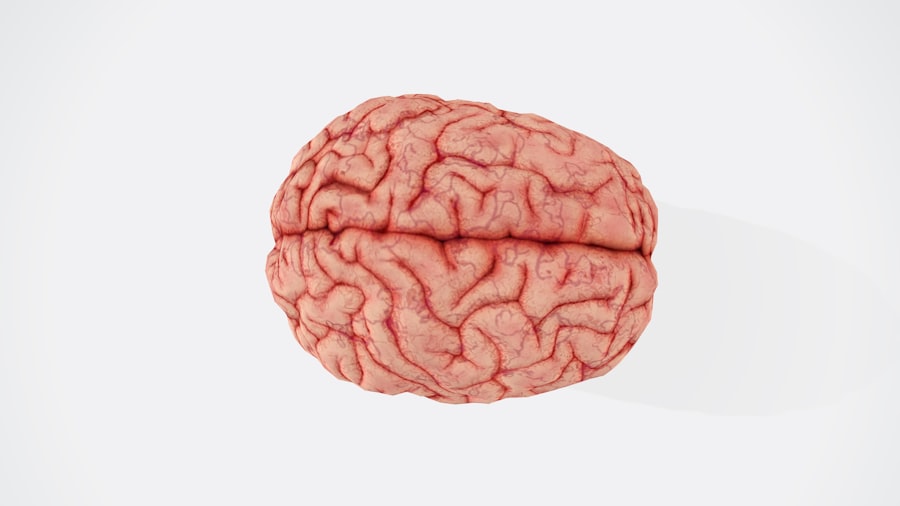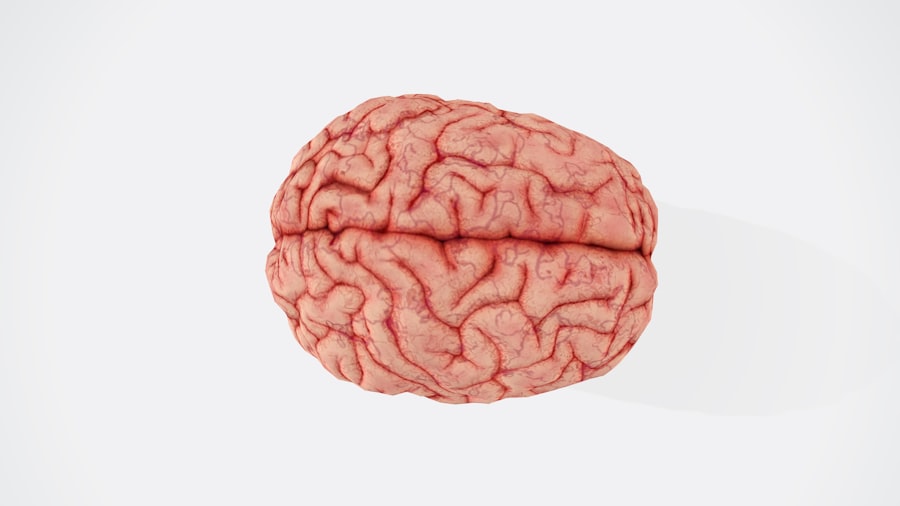In an age where information is abundant and the pace of life is ever-quickening, the significance of brain health cannot be overstated. Your brain is not just an organ; it is the command center of your body, responsible for every thought, emotion, and action. As you navigate through life, understanding how to maintain and enhance your brain’s health becomes crucial.
The brain is a complex structure, composed of billions of neurons that communicate through intricate networks. This complexity makes it susceptible to various factors that can either bolster or hinder its function. You may often hear about the importance of physical health, but mental acuity and cognitive resilience are equally vital.
Just as you would care for your heart or lungs, prioritizing your brain’s health is essential for a fulfilling life. The choices you make daily—what you eat, how you exercise, and even how you manage stress—can have profound effects on your cognitive abilities. By adopting a holistic approach to brain health, you can enhance your memory, improve your mood, and even stave off cognitive decline as you age.
Key Takeaways
- Introduction to Brain Health: Understanding the importance of brain health and its impact on overall well-being.
- The Importance of Protecting Brain Cells: Highlighting the significance of preserving and maintaining healthy brain cells for optimal cognitive function.
- Nutritional Strategies for Brain Health: Exploring the role of a balanced diet and specific nutrients in supporting brain health and function.
- Physical Exercise and Brain Health: Emphasizing the benefits of regular physical activity in promoting brain health and reducing the risk of cognitive decline.
- Mental Stimulation and Brain Health: Discussing the importance of engaging in mentally stimulating activities to support cognitive function and brain health.
The Importance of Protecting Brain Cells
Your brain cells, or neurons, are the building blocks of your cognitive function. They are responsible for transmitting signals throughout your body, allowing you to think, feel, and act. Protecting these cells is paramount for maintaining optimal brain function.
When neurons are damaged or die, it can lead to a decline in cognitive abilities and an increased risk of neurodegenerative diseases such as Alzheimer’s or Parkinson’s. Therefore, understanding how to safeguard these vital cells should be a priority in your daily life. One of the most effective ways to protect your brain cells is through lifestyle choices that promote overall brain health.
This includes adopting a balanced diet rich in antioxidants, engaging in regular physical activity, and ensuring mental stimulation. Each of these factors plays a role in reducing oxidative stress and inflammation, which can harm neurons. By being proactive in protecting your brain cells, you not only enhance your cognitive function but also improve your overall quality of life.
Nutritional Strategies for Brain Health

Nutrition plays a pivotal role in maintaining brain health.
A diet rich in omega-3 fatty acids, antioxidants, vitamins, and minerals can significantly enhance cognitive function and protect against neurodegeneration.
Fatty fish like salmon, walnuts, and flaxseeds are excellent sources of omega-3s, which are essential for building brain cell membranes and promoting communication between neurons. In addition to omega-3s, incorporating a variety of colorful fruits and vegetables into your diet can provide the antioxidants necessary to combat oxidative stress. Berries, leafy greens, and cruciferous vegetables are particularly beneficial for brain health.
These foods contain compounds that help reduce inflammation and promote neurogenesis—the process of forming new neurons. By making conscious dietary choices that prioritize brain health, you can create a solid foundation for cognitive resilience.
Physical Exercise and Brain Health
| Physical Exercise and Brain Health Metrics | Statistics |
|---|---|
| Regular Exercise | Improves memory and thinking skills |
| Cardiovascular Exercise | Increases blood flow to the brain |
| Strength Training | Helps in the growth of new brain cells |
| Physical Activity | Reduces the risk of developing dementia |
Engaging in regular physical exercise is one of the most effective strategies for enhancing brain health. When you exercise, your body releases endorphins and other chemicals that promote feelings of well-being while also increasing blood flow to the brain. This increased circulation delivers essential nutrients and oxygen that support neuronal health and function.
Moreover, studies have shown that physical activity can stimulate the production of brain-derived neurotrophic factor (BDNF), a protein that plays a crucial role in promoting neuron survival and growth. You don’t need to engage in high-intensity workouts to reap the benefits; even moderate activities like walking, swimming, or yoga can have a positive impact on your cognitive function. The key is consistency—aiming for at least 150 minutes of moderate aerobic activity each week can significantly enhance your brain’s resilience against age-related decline.
By incorporating physical exercise into your routine, you not only improve your physical health but also fortify your mental acuity.
Mental Stimulation and Brain Health
Just as physical exercise strengthens your muscles, mental stimulation is essential for keeping your brain sharp. Engaging in activities that challenge your cognitive abilities can help build new neural connections and enhance overall brain function. Puzzles, reading, learning a new language, or even playing musical instruments are excellent ways to stimulate your mind.
These activities encourage neuroplasticity—the brain’s ability to reorganize itself by forming new neural connections throughout life. Moreover, social interactions can also serve as a form of mental stimulation. Engaging in conversations with friends or participating in group activities can challenge your thinking and expose you to new ideas and perspectives.
By actively seeking out opportunities for mental engagement, you can create a dynamic environment that fosters cognitive growth and resilience.
Stress Management for Brain Health

Chronic stress can have detrimental effects on your brain health. When you’re under stress, your body releases cortisol—a hormone that can impair cognitive function when present in high levels over extended periods. Elevated cortisol levels can lead to memory problems, difficulty concentrating, and even anxiety or depression.
Therefore, managing stress effectively is crucial for maintaining optimal brain function. Incorporating stress-reduction techniques into your daily routine can significantly benefit your mental well-being. Mindfulness practices such as meditation or deep-breathing exercises can help lower cortisol levels and promote relaxation.
Additionally, engaging in hobbies or spending time in nature can provide a much-needed respite from daily stressors.
The Role of Sleep in Brain Health
Sleep is often overlooked when discussing brain health, yet it plays a critical role in cognitive function and overall well-being. During sleep, your brain undergoes essential processes that help consolidate memories and clear out toxins that accumulate throughout the day. Lack of adequate sleep can lead to impaired cognitive abilities, mood disturbances, and increased risk of neurodegenerative diseases.
To promote better sleep quality, establish a consistent sleep schedule by going to bed and waking up at the same time each day. Create a calming bedtime routine that signals to your body that it’s time to wind down—this could include reading a book or practicing relaxation techniques. By prioritizing sleep as an integral part of your brain health strategy, you set the stage for improved cognitive performance and emotional stability.
Natural Supplements for Brain Health
In addition to dietary choices and lifestyle modifications, certain natural supplements may offer additional support for brain health. Omega-3 fatty acids from fish oil supplements have been shown to enhance cognitive function and reduce inflammation in the brain. Other supplements like ginkgo biloba may improve blood flow to the brain and support memory function.
Before incorporating any supplements into your routine, it’s essential to consult with a healthcare professional to ensure they align with your individual needs and circumstances. While supplements can provide added benefits, they should complement—not replace—a balanced diet and healthy lifestyle choices.
Social Connections and Brain Health
The importance of social connections for brain health cannot be overstated. Engaging with others not only provides emotional support but also stimulates cognitive function through meaningful interactions. Studies have shown that individuals with strong social networks tend to experience slower cognitive decline compared to those who are socially isolated.
To foster social connections, consider joining clubs or groups that align with your interests or volunteering in your community. Regularly reaching out to friends or family members can also strengthen these bonds and provide opportunities for stimulating conversations. By nurturing social relationships, you create an enriching environment that supports both emotional well-being and cognitive resilience.
Environmental Factors and Brain Health
Your environment plays a significant role in shaping your brain health. Factors such as exposure to toxins, air quality, and even noise levels can impact cognitive function over time. For instance, prolonged exposure to pollutants has been linked to an increased risk of neurodegenerative diseases.
Therefore, being mindful of your surroundings is essential for maintaining optimal brain health. Creating a healthy living environment involves minimizing exposure to harmful substances while promoting clean air and natural light. Incorporating plants into your home can improve air quality while also providing a calming atmosphere conducive to relaxation and mental clarity.
By taking steps to enhance your environment, you contribute positively to your overall cognitive well-being.
Holistic Approach to Protecting Brain Cells
In conclusion, protecting your brain cells requires a multifaceted approach that encompasses nutrition, physical activity, mental stimulation, stress management, sleep hygiene, social connections, and environmental awareness. Each element plays a vital role in maintaining optimal brain health and enhancing cognitive resilience throughout life. By adopting these strategies holistically, you empower yourself to take charge of your mental well-being.
As you embark on this journey toward better brain health, remember that small changes can lead to significant improvements over time. Prioritize self-care practices that resonate with you and remain open to exploring new strategies that may further enhance your cognitive function. Ultimately, by investing in your brain health today, you pave the way for a brighter tomorrow filled with clarity, creativity, and emotional balance.
Protecting your brain cells naturally is an essential aspect of maintaining cognitive health as we age. One effective approach is incorporating a diet rich in antioxidants, omega-3 fatty acids, and other brain-boosting nutrients. Regular physical exercise and mental stimulation through activities like puzzles or learning new skills can also play a significant role in preserving brain function. For more detailed strategies and insights on how to naturally protect your brain cells, you can explore this related article that delves into various lifestyle changes and habits that support brain health.
WATCH THIS! 🧠 Stop Senior Moments: The Golden Spice That Reverses Memory Loss
FAQs
What are brain cells and why do they need protection?
Brain cells, also known as neurons, are the basic building blocks of the brain and nervous system. They are responsible for transmitting information throughout the body and are essential for cognitive function, memory, and overall brain health. Protecting brain cells is important for maintaining cognitive function and preventing neurodegenerative diseases such as Alzheimer’s and Parkinson’s.
What are some natural ways to protect brain cells?
There are several natural ways to protect brain cells, including:
– Eating a healthy diet rich in antioxidants, omega-3 fatty acids, and other brain-boosting nutrients
– Engaging in regular physical exercise to improve blood flow to the brain
– Getting enough sleep to support brain cell repair and regeneration
– Managing stress through relaxation techniques such as meditation and yoga
– Stimulating the brain through activities like puzzles, reading, and learning new skills
How does diet impact brain cell health?
A healthy diet plays a crucial role in protecting brain cells. Foods rich in antioxidants, such as fruits, vegetables, and nuts, can help reduce oxidative stress and inflammation in the brain, which can damage brain cells. Omega-3 fatty acids found in fish, flaxseeds, and walnuts are also important for brain cell health, as they support the structure and function of brain cell membranes.
What role does exercise play in protecting brain cells?
Regular physical exercise has been shown to have a positive impact on brain cell health. Exercise improves blood flow to the brain, which delivers essential nutrients and oxygen to brain cells. It also stimulates the release of chemicals in the brain that support the growth and survival of new brain cells, as well as the formation of new neural connections.
How does sleep affect brain cell protection?
Sleep is essential for brain cell repair and regeneration. During sleep, the brain clears out toxins that can build up and damage brain cells. It also consolidates memories and supports overall brain health. Chronic sleep deprivation has been linked to an increased risk of neurodegenerative diseases and cognitive decline, highlighting the importance of getting enough quality sleep for brain cell protection.
Can stress impact brain cell health?
Chronic stress can have a negative impact on brain cell health. Prolonged exposure to stress hormones such as cortisol can damage brain cells and impair cognitive function. Managing stress through relaxation techniques, mindfulness, and other stress-reducing activities can help protect brain cells and support overall brain health.
